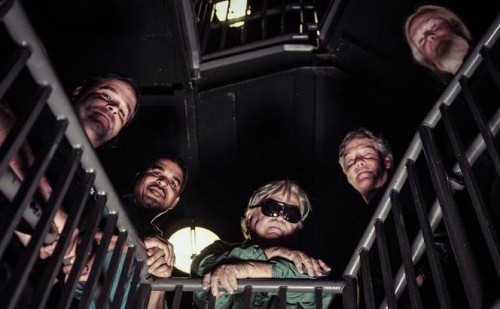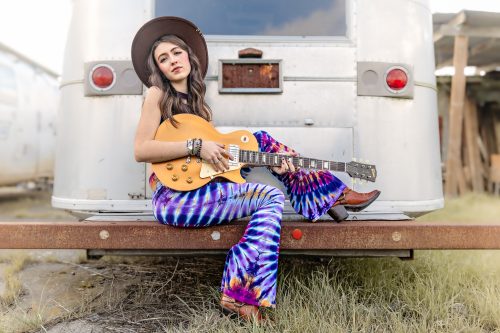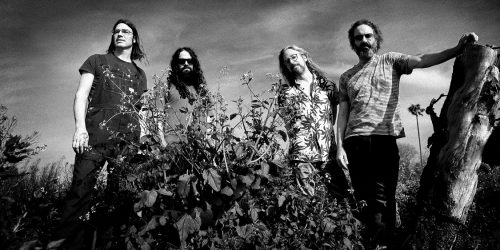Aquarium Rescue Unit, the absurdist jam-rock outfit led by the colorful Col. Bruce Hampton, is back, performing together for the first time since a 2011 reunion.
While the band isn’t a household name, its influence has been felt for decades in the improvisational rock world. Under Hampton’s tutelage, young players in the group went on to play in some of the most successful touring acts in the business: guitarist Jimmy Herring with Widespread Panic and post-Grateful Dead projects, bass player Oteil Burbridge with the Allman Brothers Band, and drummer Jeff Sipe with Trey Anasatsio, Warren Haynes, Susan Tedeschi and others.
Hampton, Herring, Burbridge have reconvened for a summer tour that kicked off at the end of July in Colorado and swings to the New York metropolitan area for a pair of shows this weekend: Saturday, Aug. 15 at the Capitol Theatre in Port Chester, N.Y., and Sunday, Aug. 16 at Brooklyn Bowl. We recently chatted with Hampton about getting the band back together, what it takes to play in his very atypical band, the current state of music, his military school experience and the movie and voiceover work he’ll be delving into after the ARU tour wraps up.
What has taken so long for ARU to get back together? I know everyone in the band has busy schedules.
I think you answered with “everybody’s got busy schedules.” Widespread Panic with Jimmy, they tour incessantly, and Oteil was in the Allman Brothers and they worked form about March until November and Jeff was out with Warren Haynes doing that Jerry Garcia symphony thing for years, so we never had a window when we can do it. We’d play one or two nights in places maybe four years ago.
With it being so long since the band played together, will you rehearse to prepare for the tour?
Well we’ve officially never had a rehearsal (laughs), but we’re going to get together in Denver and rehearse for about three days. We’re basically going to rehearse so we can remember the songs, some we haven’t played in 23 years, and also we’re writing some new tunes too.
When did you recognize that this lineup was special?
Without sounding pretentious, I felt it in my back (laughs). I mean my back muscles were telling me that this was it, go with this as long as you can. The tone and timbre and everything were like “do this as strong as you can do it.” They were so intelligent musically and they could also play so well so young and they knew a lot about every form of music at the time. Oteil grew up in D.C. and his father was playing Bill Monroe and Porter Wagoner along with Miles and ’Trane, and I just said, well, that covers the gamut, and they were just open to anything that was going on.
Is there a certain type of musician you look for when putting a band together? What does it take? It’s certainly not the typical gig.
They just gotta be open to everything, anything can happen, every potentiality and every possibility. Maybe we can do two hours of bluegrass one night or two hours of country or do all of it together or play classical music or rock ’n’ roll, just everything, open to everything. Just no box, no limitation.
Is there an adjustment period when you work with a new musician for them to be able to open up and play in that way? Do you have to break them down in any way?
It’s very hard. I try to do very little now. I would just ask questions, and now I’m certainly not a leader and I don’t lead by example, but I let them find their own voice, is what I want them to do. And that’s the hardest thing in music. You turn on the radio and you can’t tell one from guitar player from the next, it’s very hard this day in age, and to have your own voice is what’s critical to me. And with freedom comes an incredible amount of responsibility, and that’s the hardest thing to learn, I think; you can’t just do anything you want at anytime, you do it when you’re supposed to.
As far as finding your own voice and being original, is it hard to play something that hasn’t been done before?
Yep. It’s impossible. But I feel like we’re in a weird cycle of music, something’s got to snap in the next three years. To me we’re at the end of the cycle and the beginning of a new cycle. I mean I feel like it’s 1961 again and Jack Jones is on the radio and Sammy Davis Jr. doing “Candyman.” We’re at the bottom of a cycle. We just are. Most of it is decrepit. But there are a lot of bright spots out and at least you can get to them now, in 1961 you couldn’t get to anything, you just had to listen to mainstream stuff. But I feel that there’s a cycle about to turn.
I read recently something I didn’t know: Oteil was initially the drummer in ARU before switching to bass?
Yeah, I hired him as a drummer. I’m a very smart man, right? (laughs) I didn’t know Oteil played bass. I knew (Oteil’s brother) Kofi very well, and I was looking for a drummer, and I was playing with an excellent bass player Ricky Keller, and I asked Kofi if he knew a drummer, and he said, “Yeah, my brother.” I guess he was about 21 at the time and he played like Elvin (Jones) and Tony (Williams), so you’re hired. I guess he played drums for four or five gigs and he said, “I also play bass,” and he picked it up and my jaw dropped (laughs). And he’s one of the great banjo players of the world but he hasn’t brought it out to the world, but he can really play. I’d love to see him doing it.
Where has original ARU mandolin player Matt Mundy been?
Matt’s been in Cumming, Georgia where he’s from, and he’s playing every Tuesday at a place here in Atlanta called Steve’s Live Bar and he wants to play acoustic music. We would love to have him back, but he’s from a strict bluegrass world.
You mentioned some new songs. Is there a plan to do a new album?
We’re talking about it, the management is talking about it, so pretty assuredly, yeah. I hope they’re getting that together.
I’m sure you’ve been asked this thousands of times, but why did you start calling yourself Colonel?
No one has ever asked me that (laughs). I’m kidding of course. I was born with that name, then I went to military college and it’s about a 2-hour story after that. And it can be spelled k-e-r-n-e-l if you wish, but that is my actual legal name. My grandfather was a general, my uncle was a major general and everybody’s been to West Point since about 1850 but me. It’s a good nickname with a lot of benefits.
Did you finish military school?
I went to a place called Gordon Military. It was horrible (laughs). Just awful.
Is that what your life was supposed to be, as far as your family was concerned?
Yeah, I was sort of the black sheep in my family. Expected to go to West Point and die in Vitenam.
How did your decision to not pursue that path and become a musician instead go over with them? Did they reconcile with that fact?
It took them about three or four hundred years but they accepted it (laughs). They never quite got it (laughs). I’d bring home Son House records and they were listening to Guy Lombardo so there was a definite cultural war going on. But when they saw I was making a living and I was serious about it, I was about 23, everything was very kosher from then on. They actually came to gigs and I couldn’t believe it.
What are some of your interests outside of music?
Well I’m doing two movies after ARU tour, immediately after. And I’m doing a lot of cartoon work with Turner here, and I play two or three times a week and it takes up most of my time. I’m traveling at least 20 hours a week. That’s what takes up my time and I never seem to have enough.
Can you tell me about the two movies?
Yeah. One is called “Here Comes Rusty” and we’re shooting that in Arkansas, and the 12-year-old guitar player named Taz, he’s doing it too, he’s a monster; he’s doing the School Of Rock with Andrew Lloyd Webber and Jack Black starting in November and he’s a 12-year-old guitar player that’s as good as anybody playing right now. The other movie doesn’t have a working title yet.
What about the cartoon work?
Well I’ve done Space Ghost and we’re doing a new show called “Warn” and it might be live, a live call-in show, we don’t know, we’re just working on it and seeing what works. There’s another studio here where I do cartoons and voiceovers, only if they’re Southern, they won’t let me do any voiceovers unless they’re Southern. I don’t really sound that Southern, do I? Please tell me no.




Leave a Reply